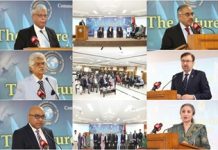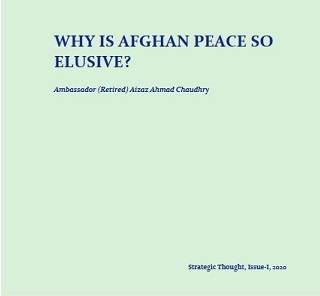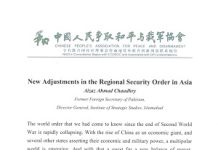Abstract
In 1979, Afghanistan witnessed a super power contest between the erstwhile Soviet Union and the United States. Soviets withdrew in 1988, the US left soon thereafter, and the Mujahideen, who had fought Soviet forces, started fighting with each other, producing in the process large ungoverned spaces in Afghanistan. Although the Taliban government collapsed in 2001, the group continued to maintain an active presence. Instability ruled. India maneuvered to increase its influence in Afghanistan, essentially to create a two-front situation for Pakistan. Afghanistan, once again, is at a crossroads. If the peace process does not resume, the fratricidal politics of the country and the geopolitics of the region would continue to intersect in disastrous ways, peppered with lethal proxy wars. Indeed, Afghanistan’s stability, or the lack of it, does impact regional and global peace. Hence, there is a dire need to address this imperative.















